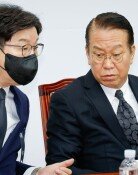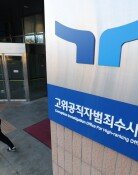Duplicating Exemplary High Schools
The high schools Inchang, Joongang Girls and Hanseong in Seouls Seodaemun Ward struggled last year as only 40 percent of their students entered four-year universities, far lower than the national average of 60 percent. Inchang principal Choi Yong-joo proposed to the principals of the other two schools to join forces in turning things around.
Late last year, the three schools began a class offering in-depth lessons on math, science and essay writing for a combined 70 gifted and talented students every Saturday. The class is taught by the best teachers from the three schools. The project benefits both students and teachers. Students save on private tutoring costs and teachers develop effective lesson plans. This win-win solution also allows teachers to compete in providing effective lessons to boost the reputation of their respective schools. Inspired by such efforts, neighboring Ewha Womans University High School also established a task force to raise the number of its students entering university.
While the efforts of the four schools are being widely praised, Banpo High School in Seouls Seocho Ward is under fire. Last year, Banpo survived a competitive ratio of 3:1 to be designated a science education school, which is allowed to have 40-50 percent of students specialize in math and science and hire holders of doctorates in science and engineering as lecturers. Government subsidies of 40 million to 80 million won (34,570 to 69,140 U.S dollars) go to each of 53 such schools nationwide every year. The schools are being urged to turn themselves into self-regulated private high schools this year. Banpo, however, refused to do so because of opposition from teachers who do not teach math and science. Teachers belonging to the Korean Teachers and Educational Workers` Union reportedly opposed the plan.
The key to a quality education is teachers. A study by McKinsey Consulting in 2007 showed that investment in teaching materials and facilities and reducing class size are ineffective if teachers are not committed to teaching. The four high schools in Seodaemun, where principals and teachers are taking the initiative to develop public education, is a precedent that should be duplicated nationwide. The ward office offered financial assistance of 39 million won (30,700 dollars) to each of the four schools, so the government should also provide full assistance to exemplary schools to serve as models.
No matter how good the educational environment is, public education cannot compete with private education if teachers are more interested in themselves than teaching, such as teachers at Banpo High School. More regrettable is that many such selfish teachers belong to the teachers union. If principals fail to control ineffective teachers, educational authorities and parents should step forward. In addition to the results of teacher evaluations, a list of teachers belonging to the union should be disclosed without fail.







